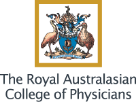What is Spinal Cord Injury (SCI)?
A spinal cord injury occurs when there is damage to the spinal cord, resulting in a loss of function or mobility below the level of injury. SCI can lead to various degrees of impairment, depending on the location and severity of the injury.
Causes of Spinal Cord Injury:
SCI can be caused by traumatic events such as falls, motor vehicle accidents, sports injuries, or violence. Non-traumatic causes may include diseases, tumours, or infections affecting the spinal cord.
Types of Spinal Cord Injury:
- Complete SCI: Involves the complete loss of sensory and motor function below the level of injury.
- Incomplete SCI: Some sensory or motor function remains below the level of injury.
Treatment Options:
Treatment for spinal cord injury depends on the severity and location of the injury. In the initial stages, immediate medical attention and stabilisation are critical. Treatment options may include:
- Medical Care: Stabilisation and monitoring in the acute phase, including surgery if necessary.
- Medications: Medications to manage pain, muscle spasms, and other complications.
- Assistive Devices: The use of mobility aids like wheelchairs or braces to enhance mobility and independence.
Rehabilitation Management:
Rehabilitation is a crucial part of the recovery process after a spinal cord injury. The main goals of rehabilitation in spinal cord injury management include:
- Physical Rehabilitation: Targeted exercises and therapies to improve strength, balance, and mobility.
- Occupational Therapy: Strategies to regain daily living skills and adapt to any physical challenges.
- Assistive Technology: Training in the use of assistive devices to enhance independence.
- Psychological Support: Counselling and support to cope with emotional and psychological challenges.
Living with Spinal Cord Injury:
Coping with a spinal cord injury may require significant adjustments to daily life. Here are some tips to support your well-being:
- Attend all follow-up appointments with your healthcare providers and therapists.
- Engage actively in your rehabilitation program and practice exercises regularly.
- Take necessary precautions to prevent pressure sores and other complications.
- Seek emotional support from family, friends, or support groups.
Our team at GC Rehab is dedicated to providing you with personalised care and support throughout your spinal cord injury recovery journey. Please feel free to reach out if you have any questions or concerns.







